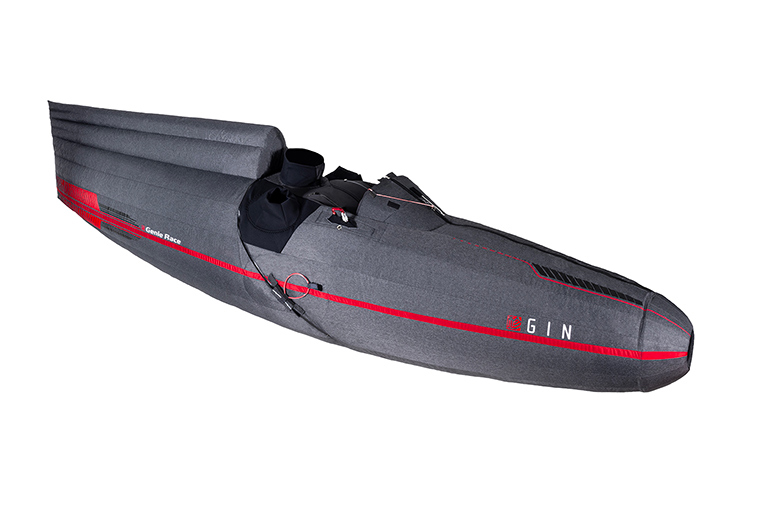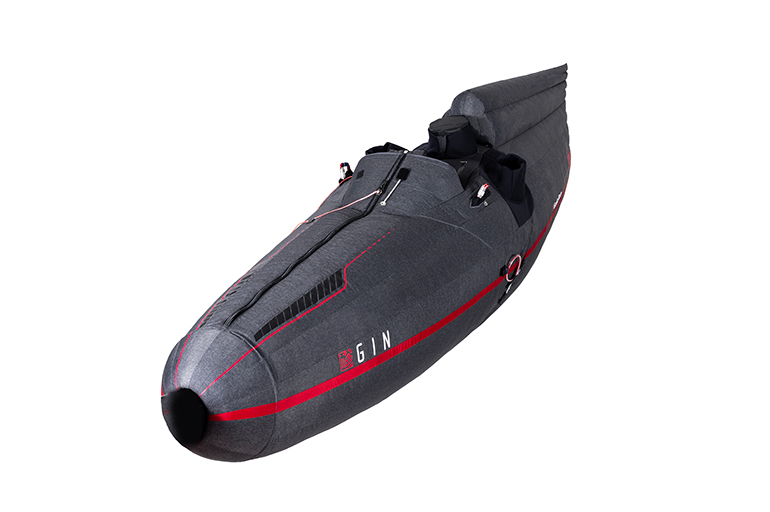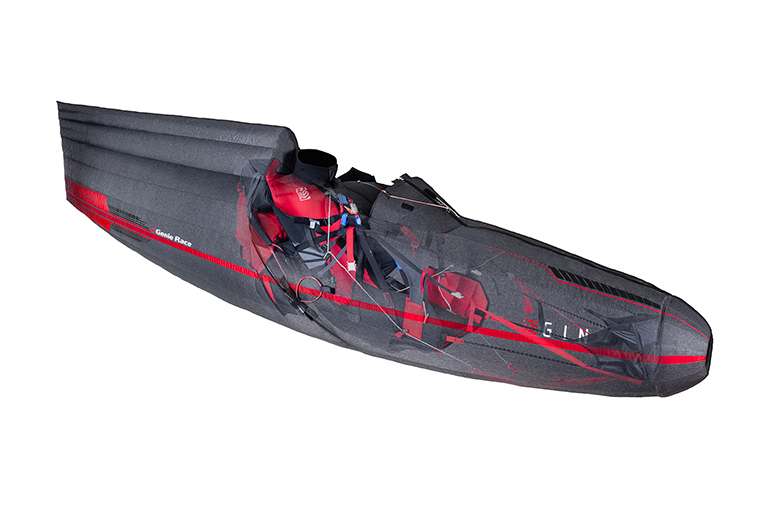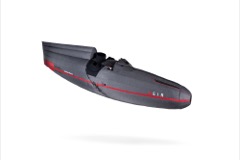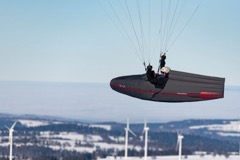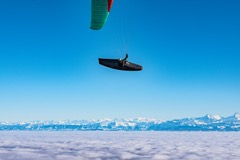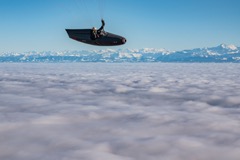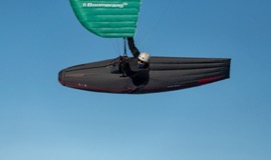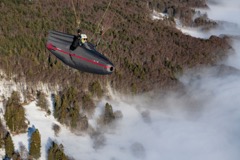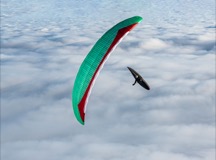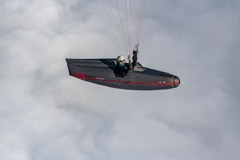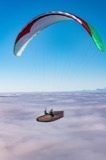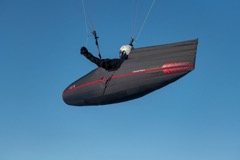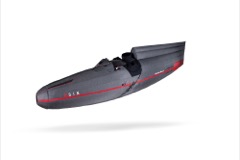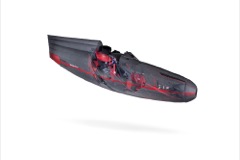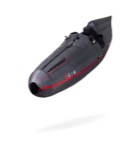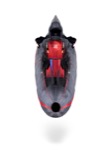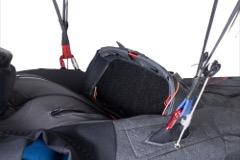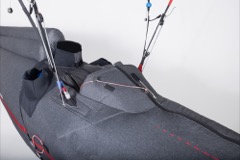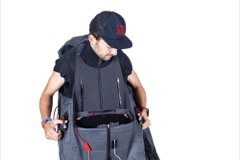Genie Race 5
- Competition
- EN / LTF / CE
Unleash your potential
The Genie Race 5 is designed to offer the highest levels of performance, whilst giving you an edge through its superior comfort and ergonomics.
It is the result of a period of intensive development in the GIN LAB wind tunnel and of racing the prototypes worldwide.
Technical Specifications
| Size | XS | S | M | L | XL |
|---|---|---|---|---|---|
| Pilot height (cm) | >160 | 160-175 | 170-185 | 180-190 | 190-200 |
| Weight of harness (kg) | 6.9 | 7.2 | 7.5 | 7.9 | 8.3 |
| Rescue container volume (cm3) | 9800 | 9800 | 9800 | 11000 | 11000 |
| Rescue bridle length (mm) | 1220 | 1220 | 1220 | 1220 | 1220 |
| Certification | EN/LTF/CE | EN/LTF/CE | EN/LTF/CE | EN/LTF/CE | EN/LTF/CE |
Performance guaranteed
Wind tunnel testing was used to inform the development process and confirm the results. The final profile of the Genie Race 5 is the most aerodynamic shape for performance, showing an improvement of 1% in drag co-efficient compared with the best performing competition harnesses on the market.
Stays inflated at all speeds
Fluttering of the harness is also a loss of performance, and the Genie Race 5 doesn’t flap or flutter, even at trim speed. The plastic reinforcements and uniquely durable yet light fabric allow for a more simplified and streamlined profile.
Easy to set up and to use
The Genie Race 5 doesn’t require complex trim adjustments in order to maintain inflation. It does still offer the ability to adjust the geometry according pilot taste.
Easy zipping and unzipping
The dual zip system also makes it easy to open and close the cocoon in the air. Pull one zip to close and the other zip to open.
Keep your cool
The fabric of the Genie Race 5 is also resistant to heat and also has a degree of breathability, which helps to prevent pilot overheating even when fully enclosed.
Your instruments where you need them
The cockpit of the Genie Race 5 is easy to install and still allows the pilot to see and operate their instruments in flight.
Well-proven geometry
The geometry of the Genie Race 5 is an evolution from the Genie Race 4, well- proven in terms of stability and feedback, both in climbs and on glide.
9cm koroyd back protector
The 9cm Koroyd protector is thicker than the minimum required to obtain certification, offering excellent protection for this category of harness whilst contributing to the structure of the harness and the maintenance of a low profile.
Wind tunnel tested
The Genie Race 5 is a product of the “GIN LAB”, a wind tunnel project run by Gin Gliders in collaboration with Ulsan National Institute of Science and Technology in South Korea. The final profile chosen for the Genie Race 5 is the result of in depth investigations of various parameters and comparative testing.
Designer notes
GIN harness designer Ho Woong offers insights on the development of the Genie Race 5
“The goal with the Genie Race 5 was to reach the top level of performance of a fully enclosed harness whilst making the harness easier to use in flight. By using a fabric with more structure, and introducing plastic reinforcements in strategic places, we were able to keep an external profile that’s beneficial for performance as a result of its simple, clean shape and resistance to fluttering and flapping.
Pilot ergonomics are an important factor in comfort and ultimately, performance. So we made everything as easy to use as possible: the cockpit, the system of opening and closing, the trimming. As a result, besides competitors, the harness is also great for the most competitive XC pilots.”
Details
- 2 rescue containers (1 on either side)
- 9cm Neo-Koroyd protector
- 30L back pocket with pouches
- routing for a hydration system and radio
- outlet for catheter system (pee tube)
- 2 pockets on vest
- 3L under seat pocket
- 1L flight deck pocket
- 10L ballast container
- 3 step asymmetric speed bar
- 2.5, 5, 7.5cm removable footpad to adjust the length of the cocoon
- shell fabric repair tape available
Size guide

Type of practice

Characteristics

Caution
Automatic aluminium carabiners have a limited lifetime due to metal fatigue. They must be replaced after 5 years or 500 flight hours, whichever is soonest. They should never be used between spreaders and tandem wing risers as main carabiners. They should also never be used to connect bridles to the reserve.
